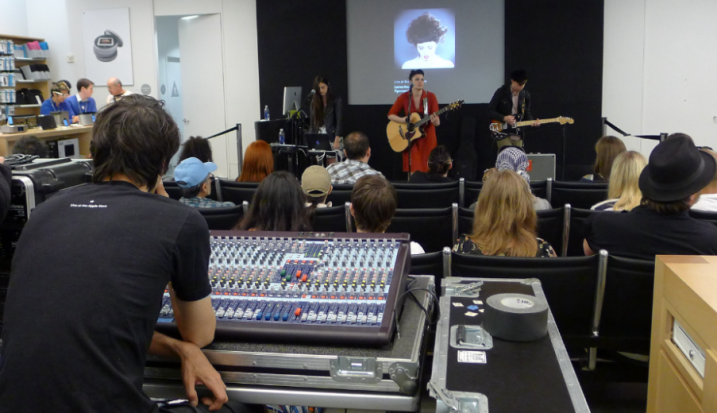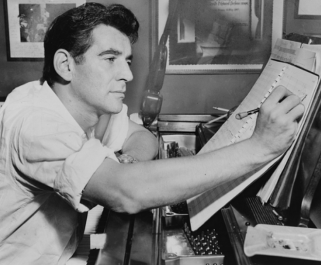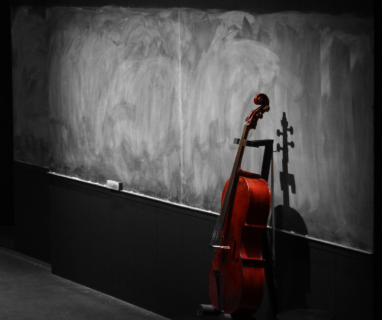Your personal music search space.
Augment your understanding of music.

______________________________________________________________________________

YMUSIC SEARCH ENGINE
Music is more than a casual leisure, an art or the new way to increase the benefits of a company. It is all of that and even more. The music industry is a rich ecosystem in which everyone and everything has a specific place. From the composer to the listener, from psychology to spirituality, from art to science, get insights on each field of music, learning about craft or history, about human behavior or consciousness. A place is also given to ethical questions.
MUSICAL CULTURE IN ITS VARIOUS ASPECTS

Be it via recordings or live performances, discover the sonic characteristics of various pieces of music. Try the YMusic search engine, your free personal assistant (it includes musical criteria to select music) and select the characteristics of sound that you want to highlight!
Which performance for which listeners?
During the Baroque period, the place for improvisation during musical performance diminished, however, the ornamentation continued to be improvised and new melodies were still added to those played by a soloist. Until recently, music was composed for creative performers: a musical work was not a unified product presenting the same rhythmic and tonal properties during each performance. That relative freedom has been rediscovered today. Of course, performers must not take precedence over a composer, but their virtuosity may add authenticity to the performance, when they respect the spirit of a composition.
What is involved in music listening? Of course, listeners listen to the musical performance itself. When they are in a live setting, they are also listening to performers doing music. More simply, on one hand, listeners are listening to a sequence of sounds and on the other hand, to a performing activity. Some works invite more focus on the content of the sheet music, like ‘The Art of Fugue’ written by Bach and other ones are an invitation to concentrate on performers’ individual interpretation, like it is the case for an ‘Etude’ composed by Chopin or a ‘Caprice’ by Paganini. In such works, attention is paid to both the sound as sound and the performance, and the effort provided by performers can be heard as part of the music.
Musical performance in recordings and during live settings
At the level of the sound, when a musical performance is recorded, a question arises: can music listeners that discover the recording enjoy the same elements that live audiences enjoyed? Do recordings reproduce or represent live concerts? Is a record a disembodied sequence of musical sounds? Does it matter if music listeners can hear the original acoustics of a music token or not? Listening to a record that is faithful to a live setting is welcome and it is possible when the recording is well done. Then listeners of the recording may enjoy the same performance as those who were present at the live venue.
At the level of the integrity of a whole musical piece, let us notice that in genres like rock music, there are limitations and complications to reproducing in a live venue the music that listeners discovered in a recording. In fact, during a recording in a studio, separate tracks are mixed together, the sound being controlled totally by sound engineers. The result is that sometimes the performers hear exactly what they recorded and sometimes not. However, both an original recording in a studio and a performance in a live setting may be considered as original works of a team. The main elements that may change are vocals and instruments solos.

Music listeners and the authenticity of a musical performance

Do you want to discover more music that sounds authentic to your ears? Try the YMusic search engine, your free personal assistant (it includes musical criteria to select music) and insert choices to get results!
Authenticity in performance as a musical norm?
What is authenticity, in matter of musical performance?
Most of the time, a performance is said to be authentic when a manuscript is performed exactly as the composer wrote it. However, that may lead to the lack of respect of fundamental musical and aesthetic norms. Is it better for performers to adopt the instrumentation of a specific era, when they perform ancient scores? Actually it is not always possible. For example, Bach wrote concertos for harpsichords, but it is not possible to perform them as listeners heard them when they were played for the first time: the original harpsichords are not made any more and only a few musicians still know how to use those which do still exist.
During the Baroque period, sheet music manuscripts were less precise than now: elements like timbre or texture were often implied and that is why, for instance, no one can say with certainty if the ‘Well-Tempered Clavier’ was written by Bach for harpsichord, clavichord or organ! Also, for the pieces of that period, choosing the tuning fork is not an easy task: it could fluctuate from one town to another. Now, the standard A, which rules the modern tuning, is fixed to 440 Hertz, and it is better to use this to perform ancient pieces of music. Even musical notes were not always written accurately: it is the case for example in a suite for cello written by Bach. And the version of Fauré’s ‘Requiem’ that was played for more than 80 years was partially inauthentic. More frequently: in various manuscripts composed by different musicians, tempo markings could be prescriptions, but also recommendations. Finally, accidentals were not always indicated with precision.
Musical authenticity and today’s music listeners
Now, without following exactly the content of an ancient sheet music manuscript that is difficult to reconstruct, how do performers execute it? They avoid transforming the musical performance into a documentary, they want to offer a musical universe that is meaningful for the listener while being sufficiently respectful of the original music style. New instruments may be used. Composers themselves always tried to innovate. For instance, Berlioz advocated the use of the saxophone in the orchestra. Mozart transcribed an aria from ‘The Marriage of Figaro’ for a wind ensemble, and inserted the result in ‘Don Giovanni’. Examples are numerous.
Today, composers do not hesitate to adapt their sheet music when music listeners ask for changes: for instance, Aaron Copland recorded the first movement of his ‘Concerto for Clarinet’ with a tempo twice as slow as the one previously indicated. In such a case, there is a real dialog between the composer and his audiences about how the music must sound to be well received. Even Stravinsky, who was very conscientious about the performance of his pieces, did that: he operated four changes in the orchestration of ‘The Rite of Spring’ so that some instruments were better heard.

Independently of any music genre, do you want to evaluate what is integrity in the field of music composition and performance? Try the YMusic search engine, your free personal assistant (it includes musical criteria to select music)!
What are some old political advertisements that include music?
In the United States, music has been used as an advertisement for political campaigns in an effective way since 1952, via television shows. It was the year during which advertising executive Rosser Reeves created ‘I like Ike’ for Dwight D. Eisenhower. ‘I like Ike’ is basically a one minute cartoon accompanied by a jingle with lyrics sung by Irving Berlin; these lyrics want to generate in voters a personal attachment to the candidate, who was very popular at that time. What was innovative in that music? Probably the presence of an ostinato and the repeating of ‘Ike for President’, which is a kind of hammering. On the other hand, the style of the television advertisement fitted the rules of the genre, as all advertisements had jingles.
In 1960, a jingle was written for John Fitzgerald Kennedy. Nixon, Ford, Regan, had their jingles. The jingle written for Reagan in 1984, named ‘Bear’, was praising the bear, asking if there was one in the country, before the appearance of Reagan’s photograph, mentioning his interest in peace. In later musical advertisements, there were less jingles, the music affecting listeners in more subtle ways. Besides a jingle, another advertisement was created for Reagan’s 1984 campaign: ‘It’s morning in America again.’ The music here is more a background music, storytelling playing the leading role: the ideal day of the average American at the time of Reagan. For the anecdote, the ‘Tuesday Team’ wrote the music and they worked for free: they just wanted Reagan as President.
How is music used in new political advertising?
In advertising, music is used as a medium to evoke certain responses from the electorate. As for jingles in general, is a major key linked to the emergence of a positive ad, while a minor key indicates trouble times ahead? It is not so simple. For example, an advertisement written for the Bush campaign in 2004, ‘Wolves’, presents background music which includes rhythms similar to those of Native American music. A voice explains that the last government has cut budgets for security in America. What kind of impression does the advertisement create? The text is an invitation to fear and the music may be associated with ancient wars. However, in itself, the music does not contain elements that could induce fear: there is not that high degree of randomness that one may find in scores written for horror movies.
Let us notice that some political campaigns do not want, in terms of music, to innovate: in 2012, Mitt Romney sang the familiar tune ‘America the Beautiful’. The song, written in 1895, was composed by Samuel A. Ward, a choirmaster belonging to a protestant congregation. Yet even though the song is very popular amongst American patriotic songs, Romney lost…
What integrity is there for music in political advertisements?
Do you want to judge the quality of music itself ? Try the YMusic search engine, your free personal assistant (it includes musical criteria to select music), and find more musical items you love, independently of their cultural origins!
The natural links between music and lyrics
Composer and conductor Leonard Bernstein once gave a conference to explain how music and language are related. He chose to present Chomsky’s point of view, comparing the grammar of music and the grammar of language. Furthermore, numerous researchers in the field of music psychology have written theses explaining the nature of the relationships between music and language in its various anthropological, social and psychological aspects.
The fact is that speech has a certain musicality and that animals, who do not speak or sing exactly as humans do, produce sounds that are musical. All the studies made in the field of human sciences are at the cross-roads of linguistics, musicology, and evolutionary psychology. They tend to prove that music had to evolve with humanity, as a fundamental process, because it was so close to language from the beginning of humanity.
Generally, these ideas are welcome amongst all the clans of the music industry: they are eminently cultural, they promote a global love for music as a universal art as well as an interest for local embodiments of music: it is especially true for all varieties of the music genre named ‘world music’, which covers a great number of all music styles from all times and places. So, music and language or music and lyrics are intrinsically associated.
Can music be seen as separate from lyrics?
In popular music, is it virtually impossible, when there are lyrics, to separate them from music. They catch the attention of the listener as much as music itself. It raises problems sometimes, when lyrics are judged non-ethical, for example when they talk about human relationships in a way that is considered as inappropriate for children and teenagers. Educators and parents may react strongly, with varying degrees of success. Alas that situation is fairly common.
Now there are more surprising cases where lyrics may interfere with the nature of musical practice. For instance, in 2015, a musical album written by a music composer producing salsa songs was excluded from a competition organized around latin music because it contained too many songs whose lyrics were in English. None of the musical elements composing that musical ‘sauce’ (which is the meaning of ‘salsa’) were taken into account. Decision makers only saw that most of the presented songs did not have lyrics in Spanish or Portuguese. Of course, each organizing committee has the right to make its own rules, however the case is significant and shows that the quality of music is too often neglected in favour of cultural criteria.
And for listeners, it means that they may ignore the existence of original productions just because of lyrics. Can popular music keep the right to express itself and invite listeners to feel and think independently of the lyrics? As lyrics induce feelings and emotions, it seems that it depends on the music and the listeners, however it is still worthwhile drawing attention to the question.
Can music composers and listeners easily focus on music instead of lyrics?

Do you want to discover how the work of a music composer or performer is evolving through time? Try YMusic, your free personal assistant (it includes musical criteria to select music), and discern what is the integrity of their musical vision!
What is musical integrity?
A question of attitudes and skills
Integrity is the ensemble of behaviors and attitudes showing the honesty and the strong moral principles of an individual. It is linked to notions like ethics, fairness and trustworthiness. It generally supposes coherence between the principles and the acts of a person. The targets of integrity may be numerous, depending on the groups in which an individual is evolving.
In the field of music, integrity may have various concerns and forms. For the lawyer working with music industry agents like labels executives and musicians associations, it is all about protecting the rights and the revenues of everyone concerned. Drawing up contracts, they must have all the economic data related to music production and distribution, these questions include issues related to new technologies and piracy. For music labels, the question of integrity is related to musical content, marketing techniques and the quality of their relationships with music composers and performers. For music educators and teachers, the main point is to ensure the transmission of musical knowledge in a way that correspond to the needs of future composers and performers but also to the requests of their future employers, private companies or institutions.
The integrity of music itself
All actors involved within the music industry have their own views concerning what is, for them, integrity. The examples of lawyers, labels and teachers show that integrity is, necessarily, embodied in specific aspects of human culture. Sometimes, these aspects seem contradictory, because everyone defines ‘integrity’ in a different way, and as integrity is strongly related to ‘honesty’, it is not always possible to determine what is integrity in the field of music in a uniform way. Most of the time, an ‘honest deal’ is not viewed in the same way by a singer songwriter and by a label.
Now, what about musical integrity itself? It seems that it is mainly about faithfulness to a target. For primary school teachers, the commitment to music will suppose that children may feel the presence of music, enjoy it and experience an elementary making of music. For music teachers working at the level of conservatories and music colleges, they teach specific skills and aesthetics in a manner that is honest and developmentally efficient, introducing students to a broad variety of musical experiences. Teachers are faithful to the various aspects of musical knowledge, including in practical areas: they teach individuals as music makers, making practice engaging and full of purpose, facilitating the acquisition of a repertoire. For music composers already at work, integrity is related to the will to follow their own musical visions. They know a wide range of musical techniques and they want to apply them in a way that is individual, enriching their art. Music listeners generally love their output for that reason. Of course, through time, music composers can reinvent their music and, in doing so, their persona or themselves: the self moving, integrity moves too. For music therapists, the main point is to make listeners feel that music can alleviate stress or improve performance.
What is musical integrity?
MUSIC IN ITS ETHICAL ASPECTS